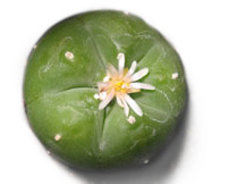Signs and Symptoms of Mescaline Abuse

Because the signs and symptoms of mescaline abuse can be obvious and uncontrollable, most young people who abuse this drug will do so only in the company of other people who tolerate drug abuse. Mescaline abuse causes severe changes in one’s perceptions and behavior and a person may not be able to tell the difference between their fantasy or hallucinated world and the real world. Therefore parents may not have the opportunity to see the signs and symptoms of mescaline abuse while the person is high on the drug. Being high on the drug is referred to as “tripping.”
For signs of mescaline abuse, a parent or other family member may have to rely on more indirect symptoms of abuse. For example, there are certain changes that may occur or continue after a mescaline trip ends.
These changes include:
- Restlessness
- Anxiety
- Depression
- Poor memory
- Flashbacks
- Drug-induced psychosis
- Worsening psychological problems.
During the Mescaline Trip
There are distinctive symptoms of mescaline abuse that can help a person identify which drug has been abused.
These include:
- Nausea
- Vomiting
- Shaking hands and feet
- Colorful hallucinations that may last for hours
- Distortions in physical senses
- A sensation of floating through space
- Panic attacks
- Attacks of terror
- Sweating
- Dizziness
- High blood pressure
- Speeded up heart rate
- No appetite
- Exaggerated emotions
- Rapid mood swings
- False feelings of power or safety
- Confusion
A pregnant woman is at particular risk if she abuses this drug because the drug can cause contractions of the uterus.
Some trips are considered good by the drug user and some can be very terrifying. In fact, a person who has a tolerable experience one day could have a terrible one the next day.
Because a person can’t always tell that his perceptions are being altered by the drug, they may not be able to moderate their behavior around parents, non-drug users or law enforcement.
Some People Become Addicted
Mescaline may not be addictive in terms of creating withdrawal symptoms but a person can become quite psychologically dependent on this drug. They may continue to use it over and over again despite the damage that is being experienced. Each year, nearly two thousand people are admitted to rehab saying that their primary problem is with mescaline.
It is possible to recover from addiction to mescaline. An essential part of this recovery at a Narconon drug and alcohol rehabilitation center is flushing out the toxins that remain behind when mescaline or other drugs are abused. This result is accomplished through the Narconon New Life Detoxification, one phase of the overall rehab program. This step utilizes a dry-heat sauna, a precise regimen of nutritional supplements and moderate daily exercise to enable the body to flush out old drug toxins. As the residues of this past drug abuse leave the body, a person’s outlook brightens. Most people also talk about reduced cravings and some people even say their cravings for more drugs or alcohol are gone after this step.
At Narconon centers around the world, the later steps of the recovery program give the individual tools he needs to remain drug-free. He learns how poor decisions regarding friends and acquaintances damaged his life in the past and how to make better choices in the future. He also learns how personal values are lost and how to restore them. One becomes able to leave the past behind and move forward into a positive future.
This is not a process that can be completed in just 28 days. For most people, it takes between ten to twelve weeks although some people take longer.
There are dozens of Narconon locations around the world. You may find one close to you or you may want a rehab facility that takes your loved one far away from his usual contacts. For help in getting a loved one started on the Narconon program, call today.
Resources:
 ®
®